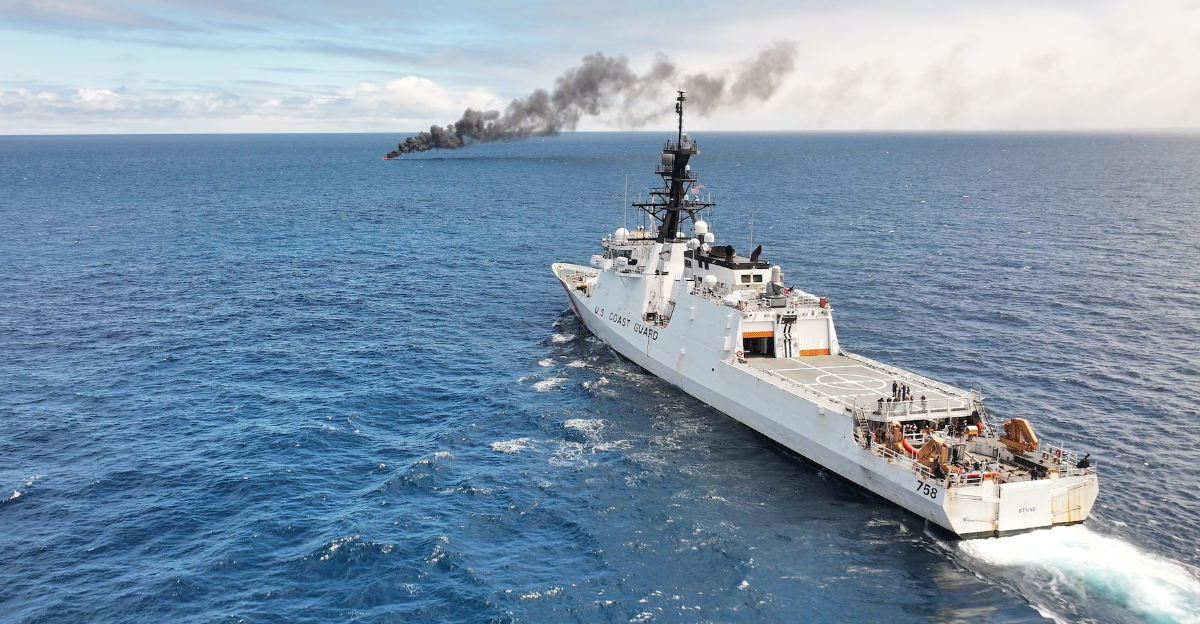
The U.S. military has taken a bold step by striking a suspected drug cartel boat in the Caribbean Sea, resulting in the deaths of 11 men accused of smuggling drugs. President Donald Trump publicly announced this action, saying the goal was to stop narcotics and protect American interests.
“Let this serve as a warning to anyone contemplating bringing drugs into the United States. BEWARE!” Trump wrote after confirming the operation.
Sea Strike Details
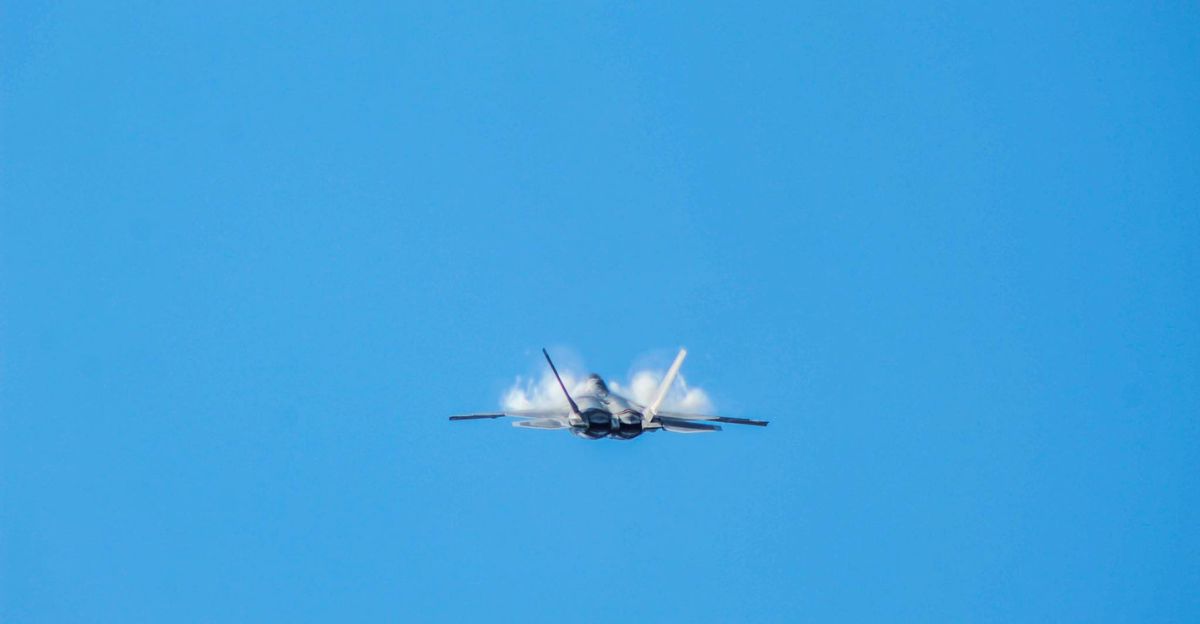
Officials say the operation happened in international waters near Venezuela, far from any country’s claimed territory. Secretary of State Marco Rubio explained that the military tracked the boat for days and only acted with direct presidential approval.
“Our forces engaged after robust surveillance and intelligence sharing,” Rubio said, noting how the location gave them freedom to act, but also caused tension in the region. However, the move also raised concerns among other countries about maritime law and territorial sovereignty, with many Latin American governments awaiting more proof from the U.S. to confirm the cartel’s involvement.
The Target
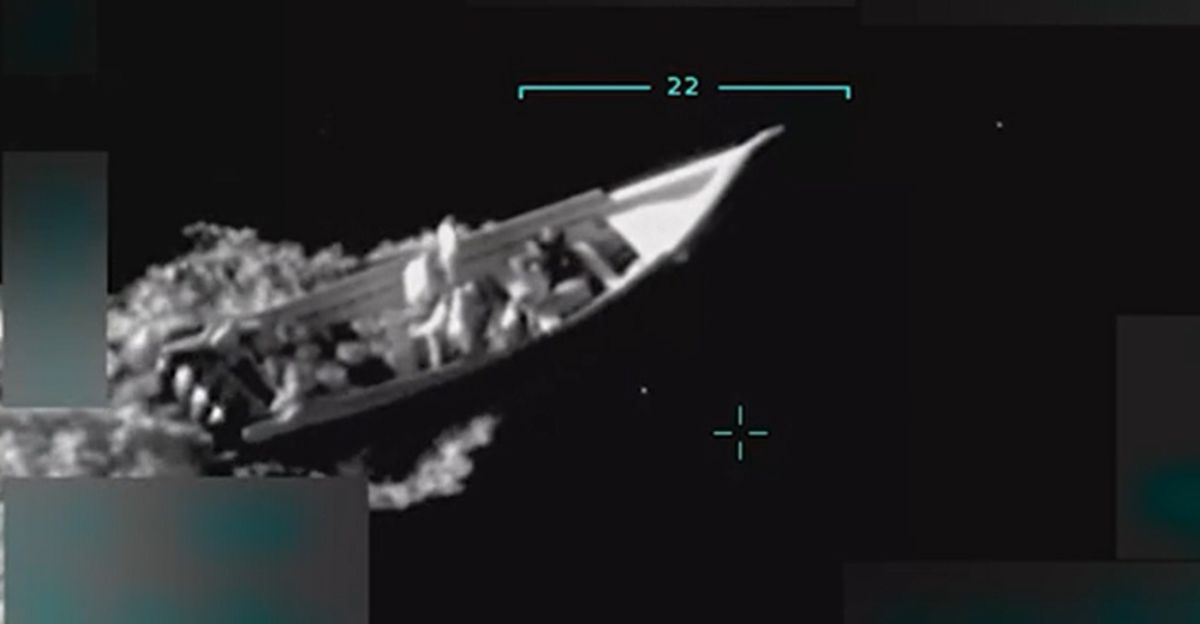
The destroyed vessel was supposedly linked to the Tren de Aragua cartel, a dangerous group from Venezuela now recognized for drug trafficking and violent crime. Early this year, the U.S. labeled Tren de Aragua a Foreign Terrorist Organization. “TDA is accountable for mass murder, drug trafficking, sex trafficking, and acts of violence and terror,” President Trump stated.
The group has specialized in different crimes based on location, including controlling unauthorized border crossings and trafficking routes, contract killings, and exploiting migrants, especially Venezuelan women in neighboring countries.
Military Prep
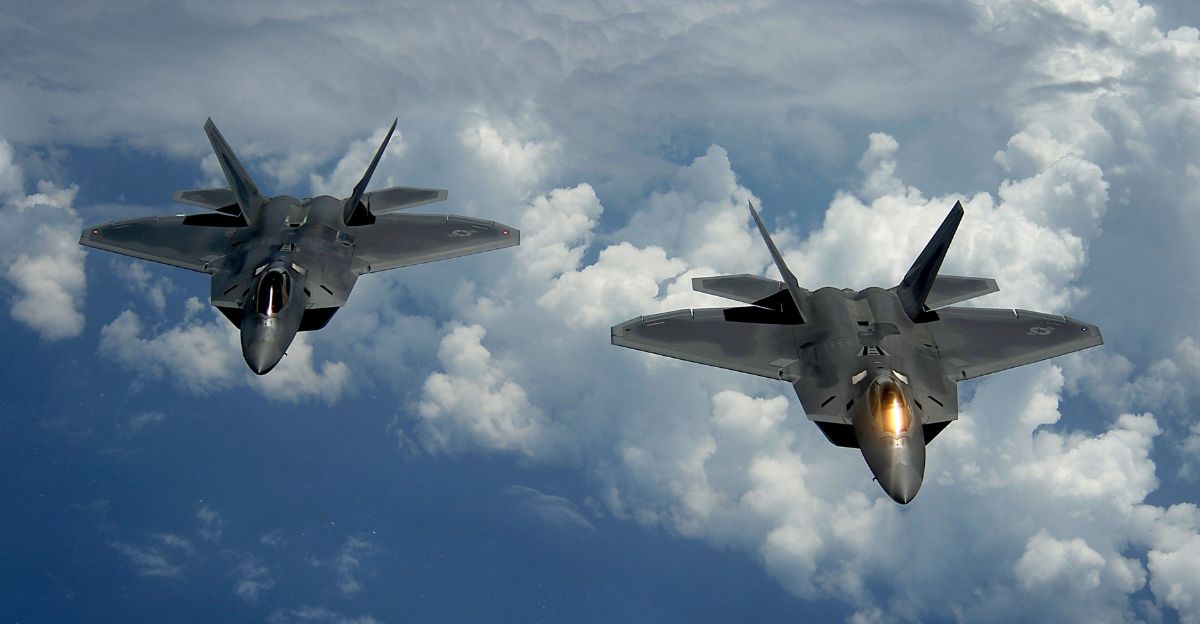
Military officials assembled a significant force that included multiple warships, such as the USS Gravely, and aircraft ready to support the action if needed. Intelligence gathering played a huge role, with American agencies monitoring cartel communications, tracking the vessel’s movements, and using advanced surveillance tools.
“We tracked their communications and vessel movements with precision,” said Defense Secretary Pete Hegseth, emphasizing how carefully evidence was collected before he and other leaders signed off on the strike.
Airstrike Executed
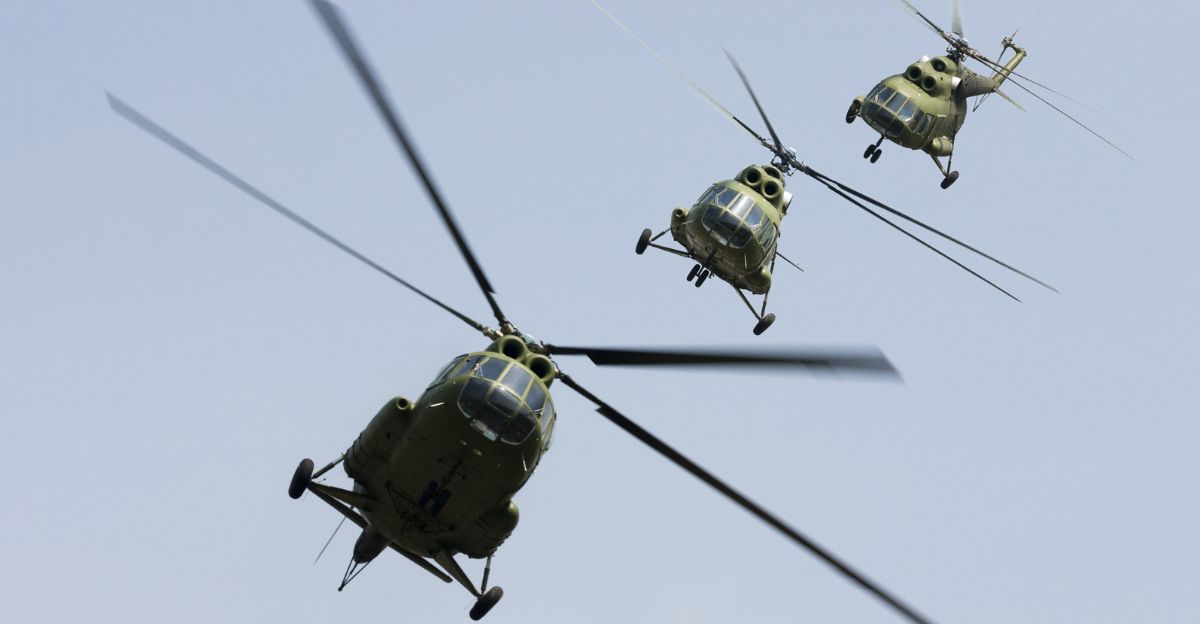
On September 2, 2025, U.S. military forces carried out a powerful airstrike against a suspected cartel vessel in the southern Caribbean. The strike was a dramatic escalation, authorized by President Donald Trump after days of surveillance and intelligence-gathering that showed the ship was transporting large amounts of illegal drugs linked to the Tren de Aragua cartel.
The decision was heavily based on intelligence that the vessel carried a big load of drugs. Secretary Rubio warned that this was a clear signal to traffickers: “There’s a new deterrent precedent in the region for transnational criminals,” he remarked.
Latin America Reacts
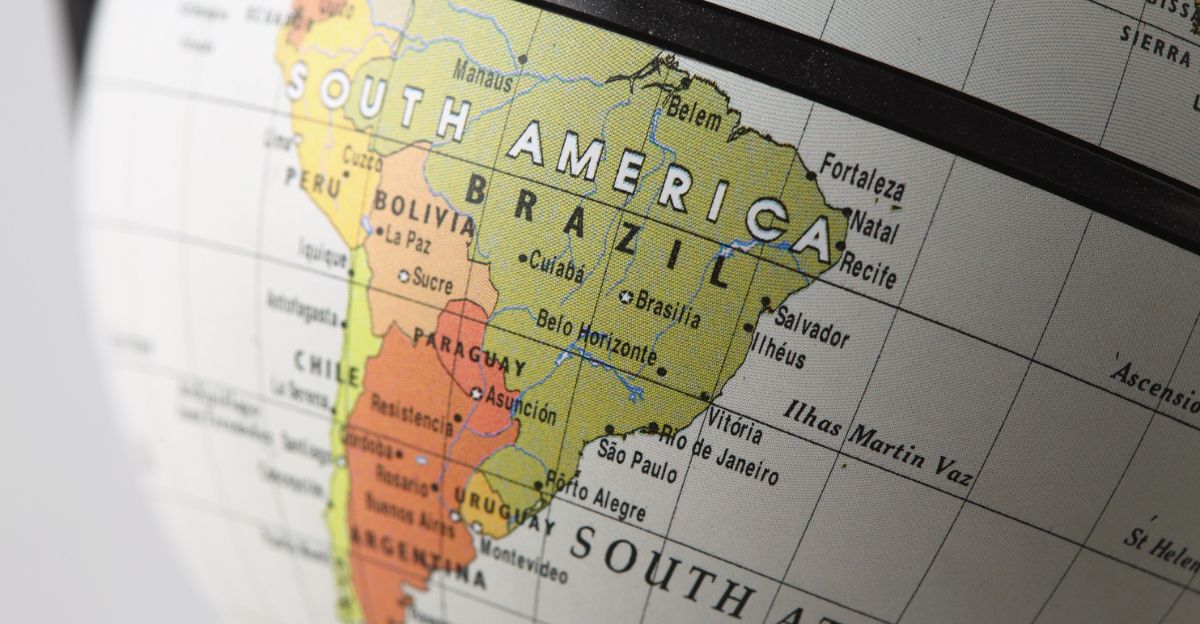
The attack quickly made waves in Latin America, where many countries must work together to fight criminals at sea. Venezuela’s leaders called it a breach of their sovereignty, while others asked the U.S. to share proof about the cartel. “We need clearer evidence from the U.S. to justify this strike,” Colombian officials said, reflecting wider concerns about safety for legal maritime traffic.
“The decision triggers fears that the U.S. might return to a pattern of military interference in the region that dates to the Monroe Doctrine,” the New York Times reported, highlighting that Latin Americans consistently rally around sovereignty and nonintervention as core values.
Human Costs

All 11 crew members died, but the U.S. hasn’t shared their names. The government has not publicly identified the men killed, providing few details about who they were beyond linking them to the Venezuelan Tren de Aragua cartel. This secrecy has stirred calls from human rights organizations for impartial investigations, arguing that it is wrong for force alone to decide guilt or innocence.
“Even criminal suspects are entitled to due process. The use of lethal force is deeply troubling,” said a Human Rights Watch spokesperson, while families in Venezuela criticized the sudden and lethal move.
Legal Controversy

Lawyers and experts are debating whether this operation was truly legal. Taking lethal action against another country’s vessel in international waters usually needs formal cooperation or approval from Congress. Professor Mary Ellen O’Connell says, “Intentional killings outside of armed conflict are unlawful unless they aim to save a life immediately”.
Bigger Military Forces
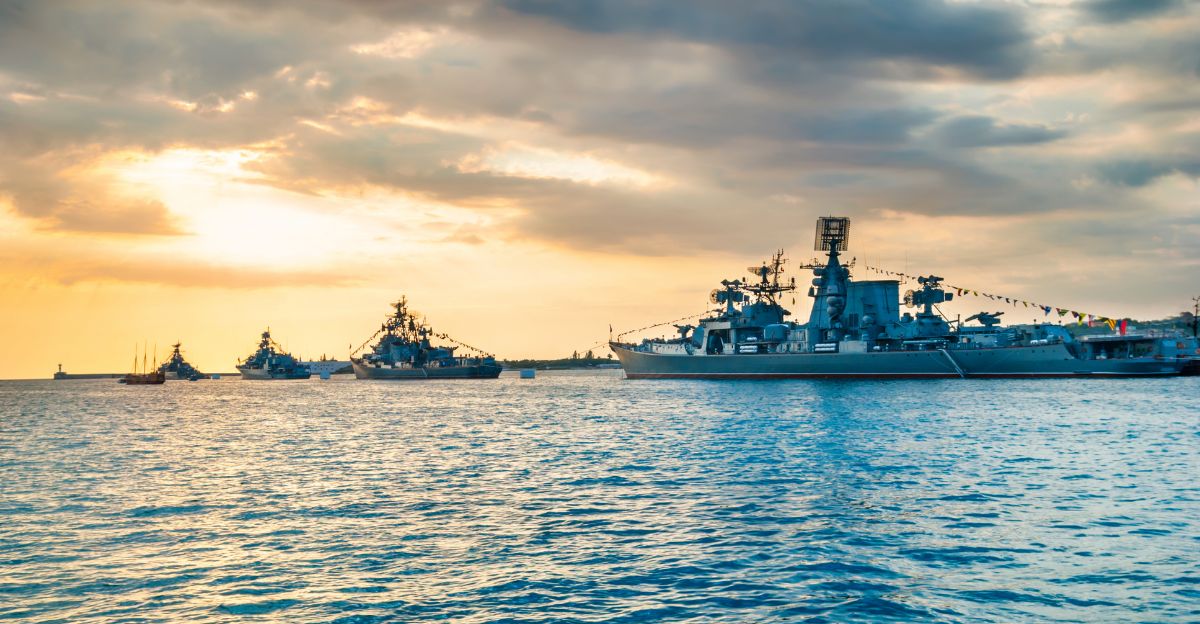
The U.S. military’s use of force in Operation Unleashed was marked by a much larger deployment than previous anti-drug missions. Warships such as the USS Gravely played a big role in the operation. The mission included advanced aircraft and Coast Guard teams, making it a joint effort that drew on both the Navy’s firepower and the Coast Guard’s law enforcement authority.
Admiral Daryl Caudle states that this operation “Gravely strengthens our maritime presence and exemplifies the Navy’s commitment to national security and safeguarding our territorial integrity with professionalism and resolve.”
Cartel Connections
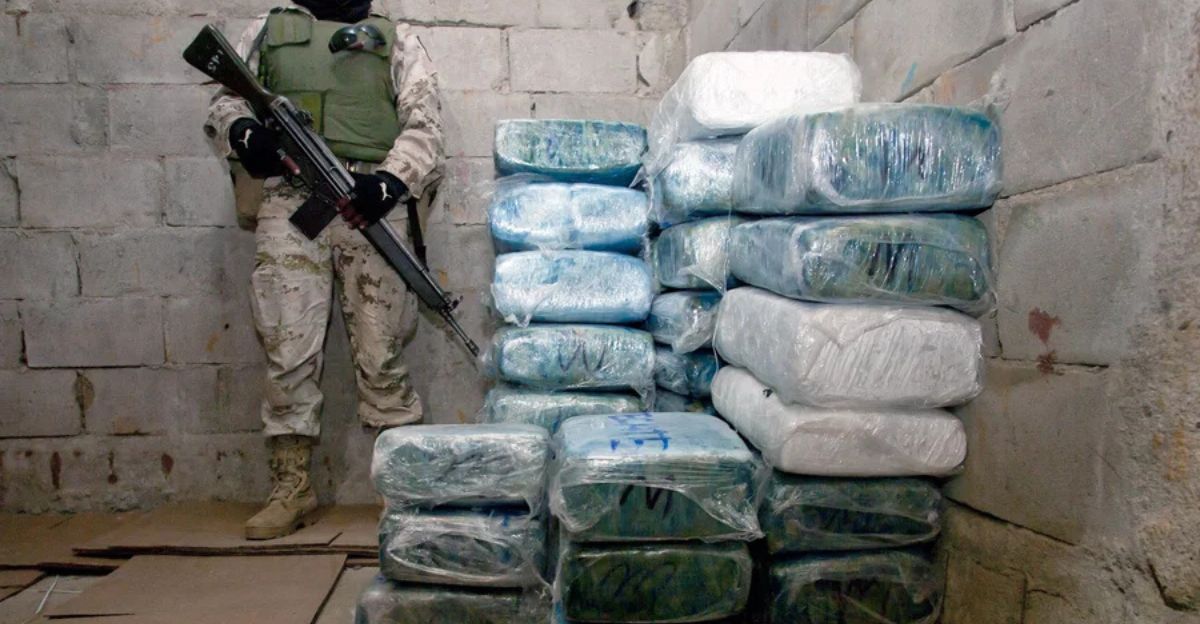
The Treasury Department confirmed the boat was tied not only to Tren de Aragua but also to Mexico’s notorious Sinaloa Cartel. This prompted the U.S. to freeze assets and punish supporters globally. “Following the strike, the government rolled out worldwide sanctions to hit every pocket of cartel support,” reported the Treasury.
Diplomatic Fallout
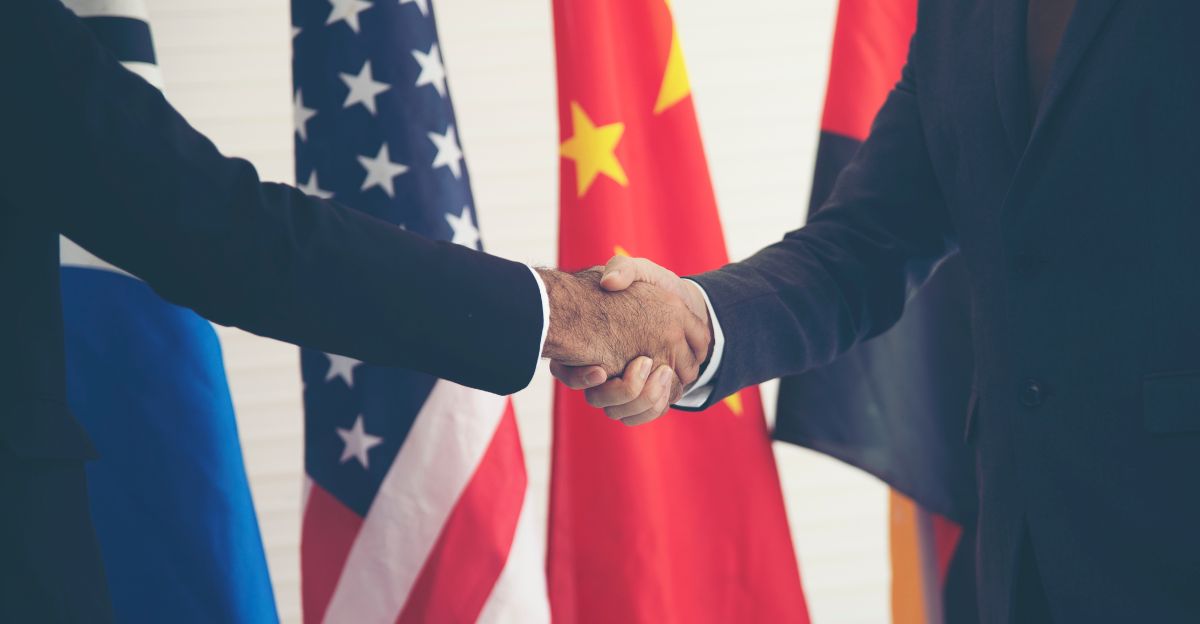
Venezuela immediately denounced the attack, labeling it a violation of its sovereignty and accusing the U.S. of fabricating proof to justify American aggression. The strike marked a new milestone in already strained relations, with Venezuela recalling previous years of U.S. political pressure, designed to oust President Nicolás Maduro.
Russia and Iran joined Venezuela in condemning the operation, arguing that the attack represented a grave breach of international law and threatened regional stability. Both nations warned that such actions set a dangerous precedent, undermining diplomatic dialogue and fueling hostilities.
Changing Tactics
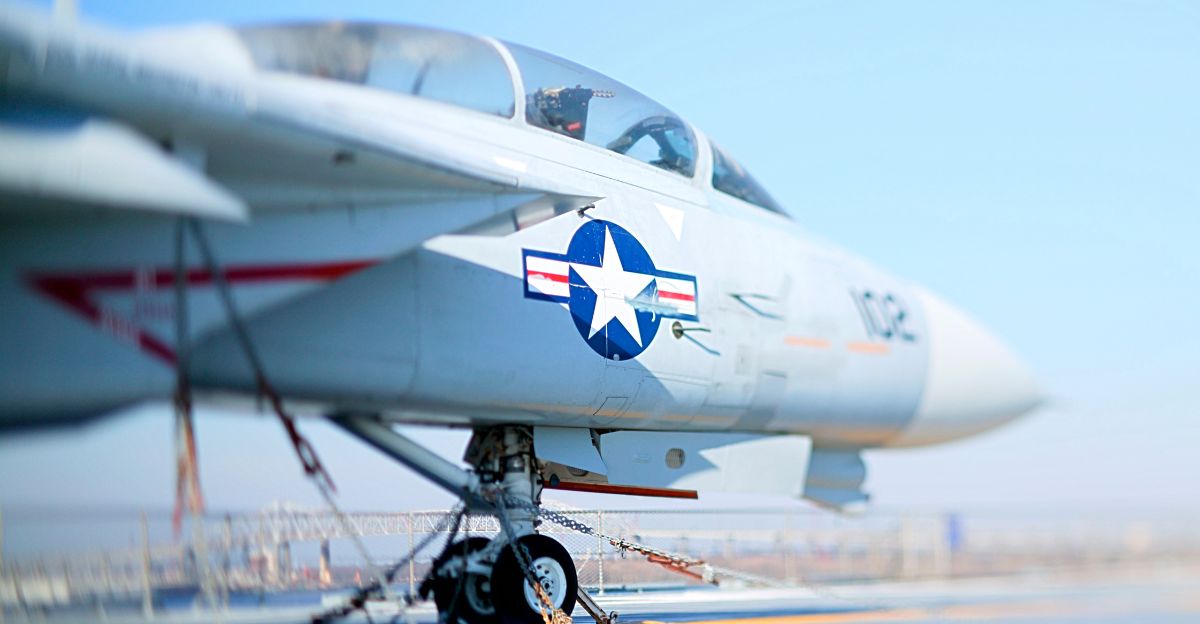
U.S. leaders confirmed they plan more operations like this against drug traffickers. Defense Secretary Hegseth declared, “We will not stop with this single strike,” emphasizing that any narco-terrorist boats in those waters would be targeted. Surveillance and readiness will stay high as the U.S. promises a longer campaign.
Hot Political Debate
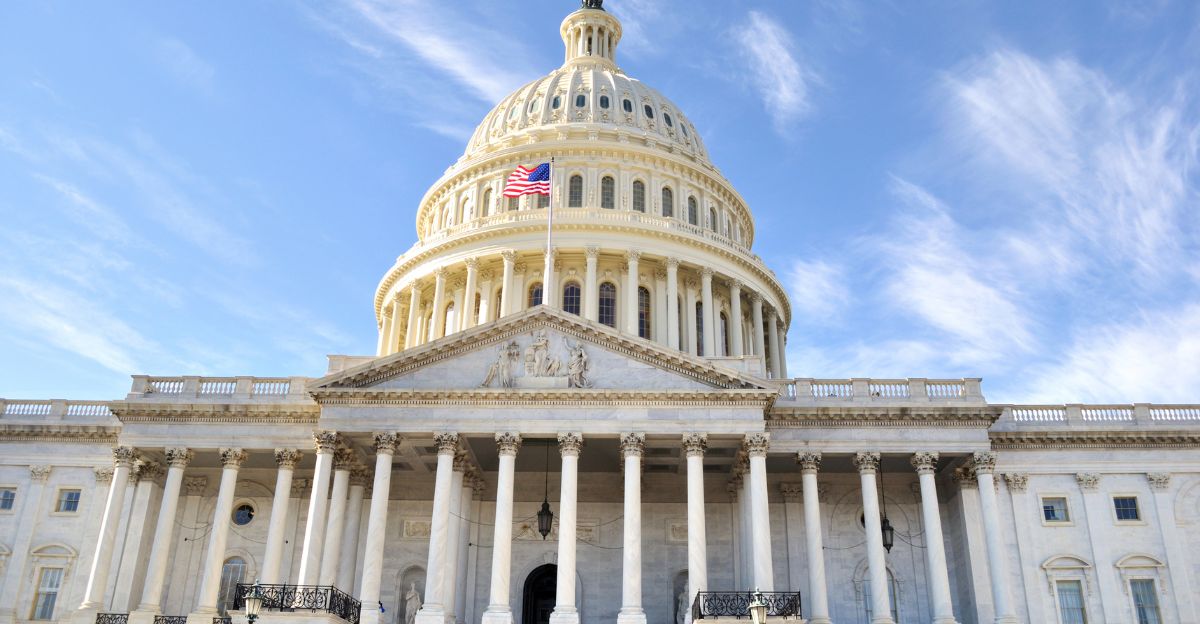
Some lawmakers and legal experts praised the operation, saying that decisive action would help deter future trafficking and show that the government is serious about stopping dangerous cartels. President Trump argued, “There was a significant amount of drugs entering our country, endangering many lives, and everyone understands that. Clearly, they won’t be trying that again. I believe many others will think twice after seeing that footage and say, ‘Let’s avoid this.’”
However, many others questioned the president’s legal authority to order a lethal military strike in international waters, especially since detailed evidence of the threat and identities of those killed has not been released. Representative Jim Himes remarked, “We have far more questions than we have answers about this strike. Under what legal authority can the president order a lethal strike on a vessel that posed no threat to the United States?”
FTO Designation
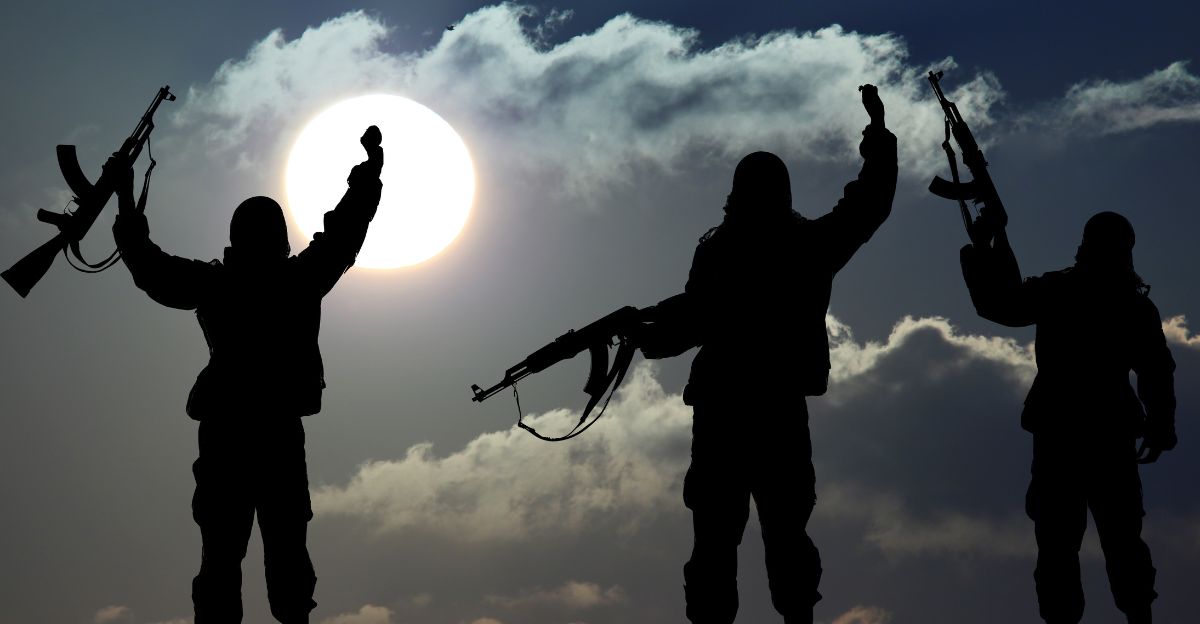
In February, the U.S. officially labeled Tren de Aragua a foreign terrorist organization (FTO). The FTO label gives U.S. law enforcement and immigration officials more power to detain, prosecute, and deport people suspected of ties to Tren de Aragua, while Treasury can disrupt their finances by targeting individuals, affiliates, and even family members involved in money laundering and terrorism financing.
Because the group works alongside other major cartels and the Maduro regime, the FTO designation also shines a spotlight on Venezuela’s alleged state sponsorship of narco-terrorism and sends a message throughout Latin America that the U.S. is stepping up its fight against organized crime.
Risks and Dilemmas
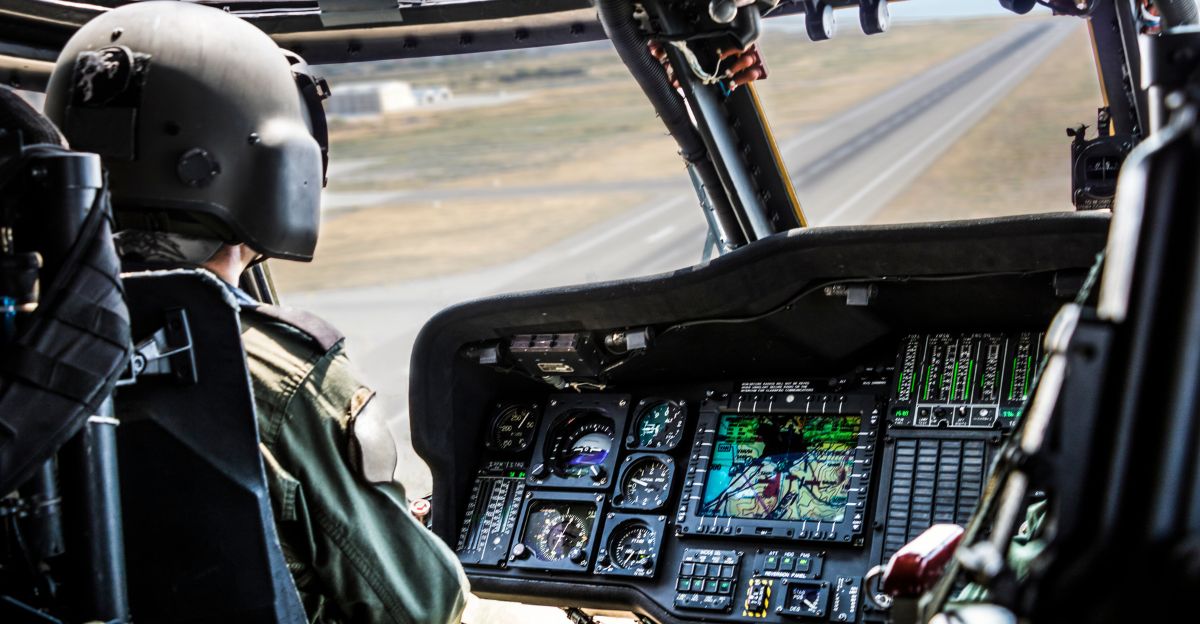
Many legal experts argue that using deadly military action in international waters blurs the line between law enforcement and warfare. There’s a real concern that relying on executive power alone could set a dangerous precedent, making it easier to justify force in complex situations where facts are murky.
“When you blur the line between war and law enforcement, you risk making things more dangerous,” a PBS analyst noted.
Investigations Start

Congress is launching a formal review to learn more about the operation. Advocacy groups are filing lawsuits against what they see as presidential overreach, and intelligence committees want the full story. Watchdogs say recommendations may soon change the rules for future strikes.
Big Impact on Industry
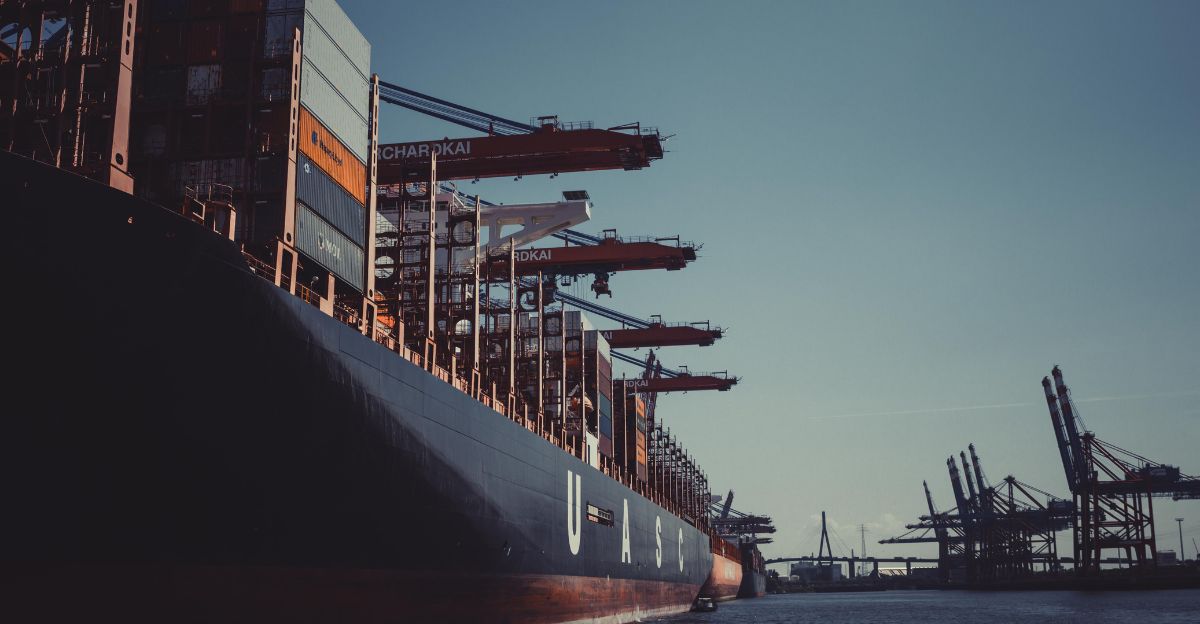
Due to the increased risk, businesses in the region are changing how they operate. Shipping and insurance companies are updating routes and policies to avoid military zones.
“We’re seeing ripple effects across logistics and security sectors as companies adjust their strategies,” reported Reuters.
Social Media Storm

The operation sparked a flood of posts online—some true, some misleading. Hashtags blew up on both sides, and U.S. officials scrambled to set the record straight. “The internet shapes public reaction faster than ever, but it can also spread rumors,” said a media expert reviewing viral footage.
Historical Comparisons
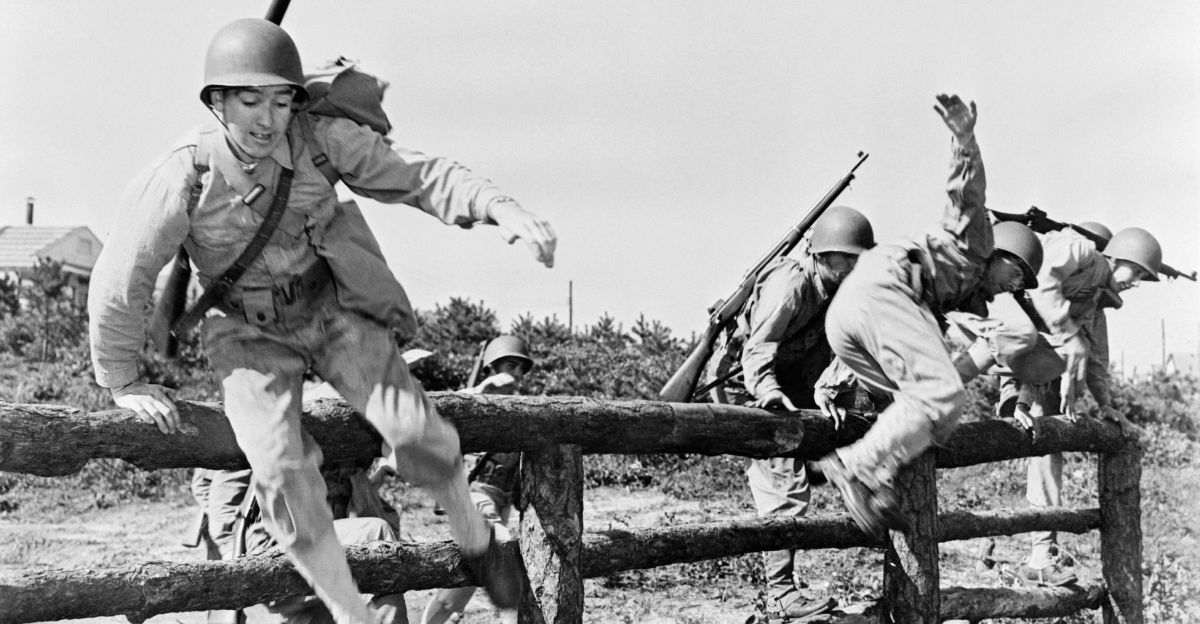
Experts compared this strike to past U.S. maritime missions against smugglers and other conflict zones. History shows such actions often spark tough debates about law, diplomacy, and public trust. As one analyst warns, “If protocols don’t improve, we risk repeating old mistakes with new consequences”.
One famous example was the 1989 invasion of Panama to capture dictator Manuel Noriega, condemned by the UN as violating international law. In the 1980s and 1990s, military resources supported anti-drug efforts in Colombia, Bolivia, and Peru, sometimes leading to unintended violence, such as civilian aircraft being shot down after intelligence-sharing.
What’s Next?
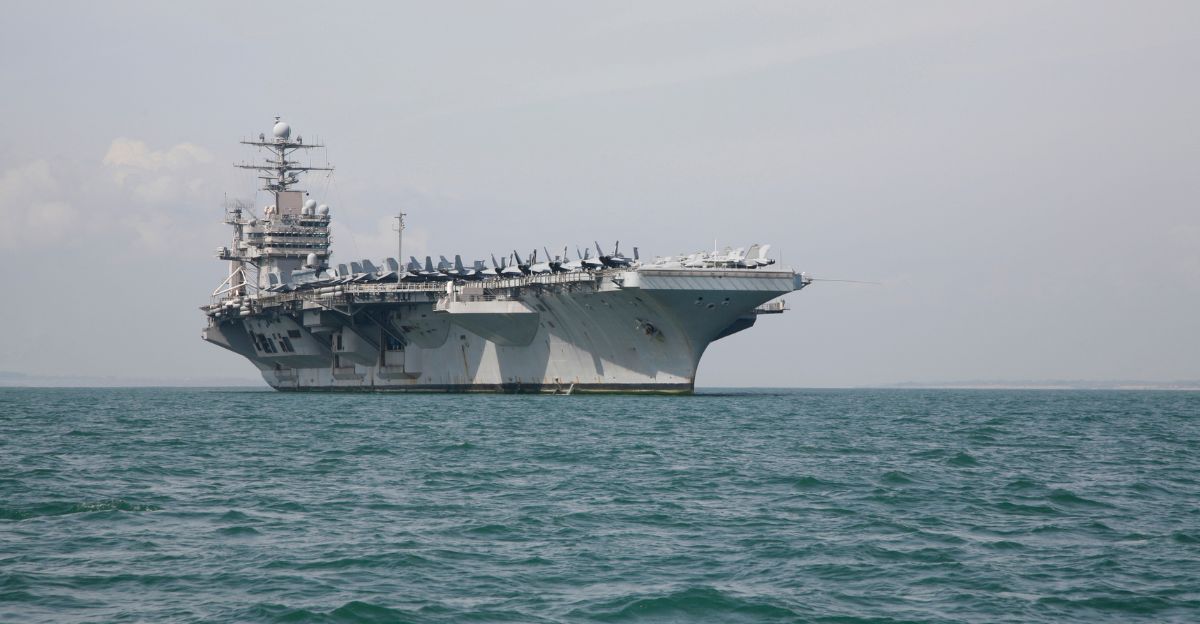
American leaders have signaled they will continue taking bold actions against drug smugglers in the region, with President Trump authorizing new powers for the military to confront cartels even beyond U.S. borders. As Secretary of State Marco Rubio put it recently: “We need to begin regarding cartels as armed terrorist organizations, rather than merely drug trafficking enterprises.”
At the same time, neighboring countries and experts warn that such actions risk violating sovereignty and might create new diplomatic tensions. Back home, legal battles and congressional reviews are underway to decide how much power the president should wield in launching military strikes against suspected traffickers. Questions about due process, treaty obligations, and the role of the U.S. armed forces in overseas law enforcement are now front and center.